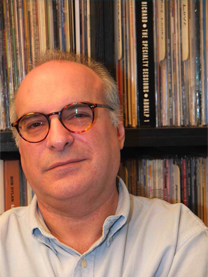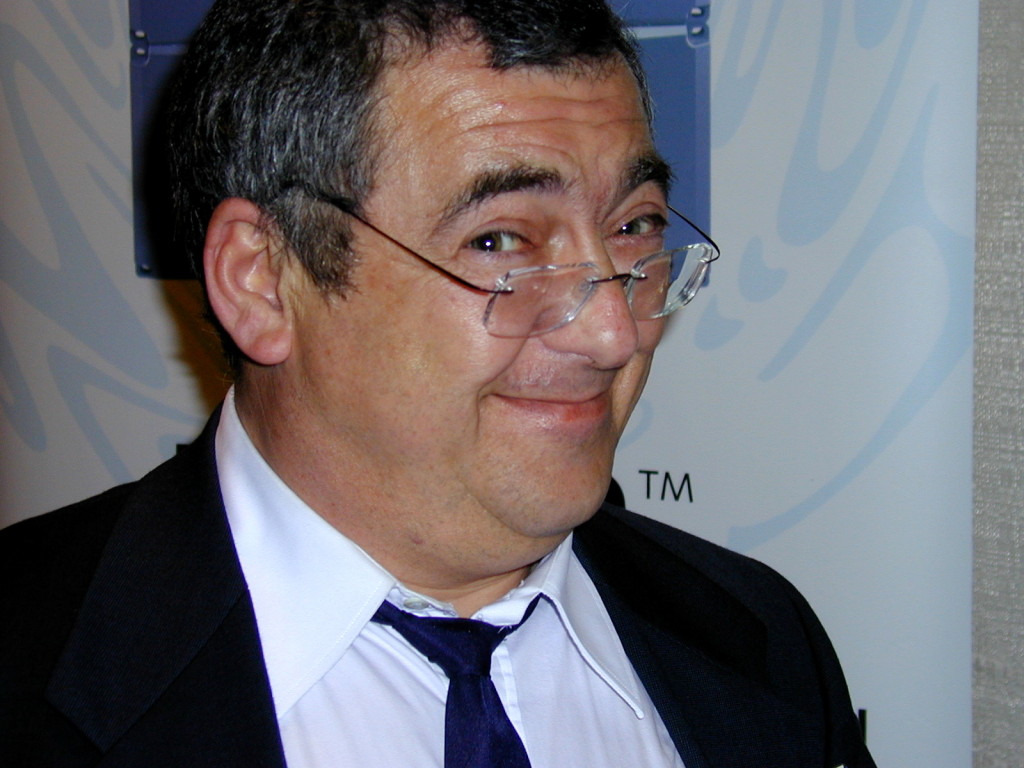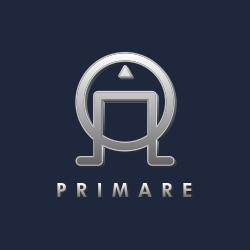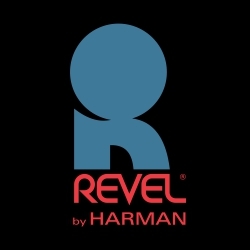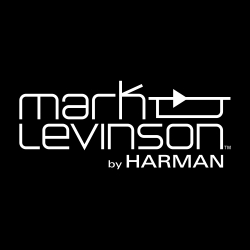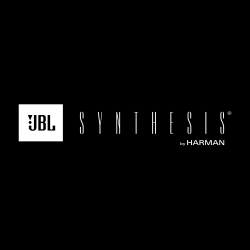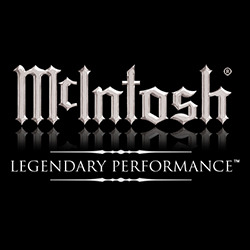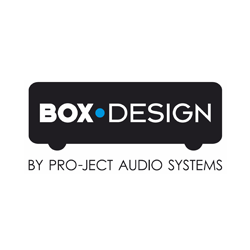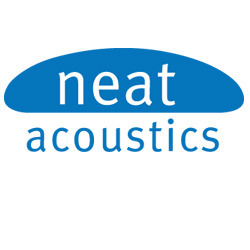The Thoughts Of Chairman Ivor (1994)
For over two decades, Linn Products Ltd of Scotland has dominated the British audio scene, the success due in no small part to the enthusiasm and notoriety of founder Ivor Tiefenbrun. Truly the PT Barnum of hi-fi, Tiefenbrun has badgered, seduced, cajoled, finessed and intimidated his way across hundreds of column inches in magazines around the world.
During the course of Linn history, he has championed dealer installations, home demonstrations, single-speaker demo rooms and other practices which, in the UK at least, transformed the way hi-fi is purchased. More controversially, Tiefenbrun and Linn also helped to alter the way hi-fi is used, having called attention to the integrity of speaker stands, spikes, cable quality and other aspects of what is now regarded by many as normal hi-fi “housekeeping”.
Linn has now moved from turntable-only manufacture to a position where it produces entire hi-fi systems, and in a robotized factory judged to be one of the most modern and sophisticated in Europe, let alone Scotland. But the change from specialist to broad-based manufacturing means that Linn can no longer be regarded as that fringe operation able to indulge in the sort of infantile pursuits which made high end audio both fun and frustrating a decade ago. Additionally, Linn has embraced technologies which would have been regarded as heretical in the heyday of the LP12: full remote control pre-amps, multi-room installations, a range of CD players and converters.
Synchronicity and irony played their parts when I called to make an appointment with Ivor for this interview. The mutually agreed site was London, after an event which shows just how respectable Linn has become. Now one of the product lines carried by Harrods, the most upscale department store in the known galaxy, Linn was chosen by that company and Warner Bros (UK) to supply the sound system for the press launch of the digitally-remastered Led Zeppelin catalogue. Was I the only guest present to note the incongruity of Linn — once the last bastion of analogue –helping to promote the digitizing of analogue masterpieces?…
KK: What do you see as the differences between Linn circa 1994 and Linn at the height of its notoriety in the late 1970s? I would describe the old Linn as targeting products purely at hobbyists…
IT: (Laughs) I got into hi-fi as an engineer who was interested in music. My goal, my aim was to build a full range of quality hi-fi equipment. And it took us a long time to do that. Our notoriety came from the proposition that what we had was outrageous, was unbelievable — basically that a turntable could influence the sound. So the initial reaction to that was incredulity. That made us notorious (A) because the claim seemed outrageous and (B) because we had to be very vociferous to actually convince people. People often wouldn’t listen. They said that turntables just went ‘round and ‘round. I used to say, “And loudspeakers just go in and out.” (Laughs.) But you remember those days.
KK: Of course.
IT: But from the beginning, to me the thing was the access to the music. So there was this kind of threshold and if you got above it, a system could seduce you into listening to it even if you didn’t know the music. It’s that ability to learn, to discover and to explore that excites my interest in hi-fi. It’s not the joy of tinkering. I got over that as a kid, with my “boy racer” days, with my motorcars which I used to take apart. That was my main outlet. So I think that one of the things about Linn is that we have the people who started it at the beginning are still there now, and we’re still trying to achieve what we set out to achieve.
KK: So a full system was always part of the game plan?
IT: Always. The first product that we made was the LP12 [turntable]. And at the bottom of the leaflet it said, “Sondek Division”. People laughed; they said, “But you only make one product.” And I said, “Yes, but we want to make a complete system.” We wanted to be specialists in music systems rather than a turntable specialist, an arm specialist and so on.
That was considered an awfully ambitious goal. But if you don’t have a goal, a dream, you have no future. So within a year, we had another leaflet with “Isobarik Division” on it. It was less than a year after the LP12. And over the years we ended up with three loudspeakers – we had the Kan, the Sara and the Isobarik. Then we went into tonearms and cartridges. And the last stage was when we did our own pre-amp and power amp.
KK: At what point do you think that Linn graduated, in the perception of the public, from specialist status — when all your customers seemed to be hi-fi magazine readers — to broad-based?
IT: Well, the way people find out about Linn now might be slightly different. I think that the public perception of us probably hasn’t changed because people either know about us or they don’t.
KK: Despite of all your efforts to reach a wider audience?
IT: In spite of all our efforts. We might be one of the best-known specialist hi-fi companies but we’re still not –
KK: – a Sony.
IT: Of course not. Those companies are thousands and thousands of times bigger than us, enormously successful, global companies. But in our small part of the market we have a great deal of brand recognition and probably a lot of respect. Now it might seem funny to you to use the word “respect” but I think that the perception of us changed when we led the way to being the first specialist full-range kind of company. Because that was another Linn “first”.
Whenever we’ve made these moves, far from being welcomed there’s a kind of natural reluctance to welcome new kinds of competition or a change. People have a natural inertia. It mitigates against change. So people saw our development into a full-range hi-fi company as a threat to the notion of the component business. We still make components; all of our products can be used independently in a broad context with open standard interfaces. We are part of the big industry, we welcome it. There’s no fun dancing alone at the discotheque even if you own the discotheque.
But I think that the industry’s perception of us changed. And I don’t really think that reflects the public’s perception. In a sense we’ve also been seen to have started out as tweaky and way-out – though the two aren’t necessarily synonymous – too successful and therefore a target. If you’re in the pole position, everybody’s trying to pass you and knock you off. Rolls-Royce and Ferrari will get reviews that tear their products to shreds; it’ll never happen to Skoda or Proton [the Korean car maker, not the hi-fi brand KK]. So there’s a price for being an innovator or a leader.
KK: Do you think that it’s possible for any company which had its roots in the specialist or audiophile sector to make the transition to a broad-based market, to appeal to non-enthusiasts so to speak? To put it another way, is it possible to be more commercial and still be tweaky?
IT: We don’t want to be tweaky and we’ve always had to be commercially viable. Otherwise the company wouldn’t be here. And we couldn’t support our existing customer base or do justice to the people who have built our business: the distributors, the retailers, the rest of it. So we’ve always had to be serious. And the LP12 was always a serious product.
KK: But there was always a tweaky element to it. Maybe “tweaky” is a bad word but it was Linn that pioneered the whole notion of a progressive series of upgrade steps based not just around upgrading whole components, but around fine-tuning. It was Linn that talked about things which had nothing to do with buying new equipment: tightening up the screws that hold your drivers to the baffle, polishing a stylus with a matchbook striker, cables. What Linn did was act like a manufacturer voicing the same sentiments that had less respect or less credibility when they came from an audio writer. The same thing only in a different context.
IT: (Laughs) The irony is that we spawned a vast industry in cables and clamps and connectors and so on. We said that these things were important and no-one believed us but probably it produced this sub-industry ….
KK: You didn’t cash in at all, aside from a few cables and stands?
IT: No, we didn’t. We’ve never managed to benefit from all that. You know that pioneers get scalped and settlers take the profits. That’s the way it works. The reason for being a leader, a pioneer is that you want to be. At Linn we’ve got people that are enthusiastic about engineering, about quality, about music and we don’t see it as an enthusiasm for hi-fi, we see it as a way of getting at music. It’s a key.
KK: But if we were true to ourselves as music lovers, we wouldn’t give a damn about the equipment we played it on. Sure, we’d rather hear music on a good hi-fi system than a boom-box, but if music is all that we’re after, then we could be happy with less.
IT: No, because you’re not going to broaden your taste in music unless you get a system that’s good enough to take you in there and allow that music to communicate with you. And that to me is the rationale for hi-fi. It’s not just to have better quality per se. It’s because the advantage is that you can start to appreciate things you never thought you would. Your taste develops, broadens, deepens. And then you can bring your family up with music. That to me is the justification for the hi-fi industry. And that’s why the quest is endless. One day you will enjoy opera with our help.
KK: Never!
IT: It is possible. We’re famous for demonstrating the differences. We’re famous for initiating spikes to keep speakers from wobbling. People see that as tweaky. On the other hand, when the market discovered that, the retailers found a way that they could contribute to the sound that the customer had in the home. And we emphasized that. But there was always an element that perhaps without fully understanding everything – and no-one does – made more of the adjustments than of the basic fundamentals.
The retailers main way of contributing became mixing and matching components, telling the customer what to do. And that disenfranchised the customer and emasculated the retailer. Then, when CD came along, people felt, well, there’s nothing you can do here. The fun’s gone out of the business. You’re not going to be able to make a sound that will astonish people. And maybe the retailers and the manufacturers felt that we can no longer surprise and astonish the customers in the way that an LP12 could.
What we’re saying is that you still can. You just need a higher level of expertise. You can do it with the quality of your installation. And when you’re talking about in-wall, multi-room system you only have one chance to pick the point where you’re going to put the speakers in the wall. You can’t go knocking holes all over the guy’s walls. So the paradox is you need a higher level of expertise.
KK: Is that what led you to the global restructuring of the Linn dealer network?
IT: There are two things which caused that. One was the imperative of 1992*, which made it clear to us that companies that didn’t have a strategy for quality distribution would not be able to make a quality product. The choice in this world is to be the cheapest or the best. We wanted to be the best. That means that we needed the retailers that were committed to a quality approach. Otherwise, what can they do that a mail-order catalogue can’t do?
They can understand their town. They can know how to make a good sound in the home, they know where the music is, the record shops, the universities, they can know the community. They can demonstrate they can communicate with their customers, they can service, they can install. It’s that which our retailers can do, can address that the mail order house can’t do.
We said, “Look, guys – we can only maintain the quality if we have a contract that embeds these standards. These are the standards that we think we should be applying. You tell us.” And we put on our questionnaire, “How good do you want to be?” and we’ll abide by the majority view. And they pitched it at a certain level.
But it wasn’t above the level at which we started. It wasn’t below it either. The irony is that the people who talked the most about quality and standards didn’t want to do it, and the people who were most concerned did. Because the people who took it seriously had their doubts. Would they be able to compete against discount competition selling product in boxes? Well, we know the answer: the people with the balls to remember why they got into the business in the first place went for it. The others bad-mouthed us, rubbished us, hoped we would fail in the mistaken belief that that would make them more successful. That produced the controversy.
KK: What is the downside of having a restricted dealership?
IT: The downside is that people think it’s restrictive. It isn’t. It’s open, it’s competitive. And anyone who meets the standard can participate. There’s no point in making better hi-fi if no-one here’s it’s better, or if it doesn’t perform better in the customer’s home.
The two things I wanted to do when I started the business were to treat other people the way I’d like to be treated and to make stuff that was better than what I could buy. It seemed pointless to me to make something if I could walk down the street and buy a better one. I thought if I could do this, make people happy and listen to music all day, what a great way to make a living.
And I think that’s what got a lot of people into the business in the first place.
KK: How do you now see Linn’s initial resistance to and final acceptance of CD?
IT: (laughs)
KK: Because you did say –
IT: – there was blood coming out of the record player.
KK: Aside from the legendary, possibly apocryphal remarks, you did say when you brought out your first CD player that you’d always maintained that Linn wouldn’t bring out a CD player until the sound was of a standard of the turntable.
IT: With CD, we felt that the claims made were exaggerated, we felt that it didn’t do the industry a service, we felt that it was counterproductive. And events proved that what we said was correct. In retrospect, I was wrong. I probably should have been more positive about it. The perception was that we were negative about it. People who know the company know that we were working on it from the beginning, that we had digital recording systems years and years before.
And then our customers were terrified that we would walk away and abandon their precious record collections. The question I’m asked most often, though, is, “Are you going to keep on improving the LP12?” Now, in the last few years the rate of product enhancement and improvement to the LP12 has exceeded anything we’ve done prior to launching our own CD players, yet people are still nervous and neurotic. That’s because we all know that there will come a time when it will be very difficult if not impossible to access the music that exists in vinyl.
But no-one is more interested in that music or values it more highly than we do. But we do know it’s conceivable, probably inevitable that although we will make record-playing equipment for as long as people want to buy it, that in the future vinyl will be the preserve of people who know and understand what is uniquely available on vinyl and who are prepared to invest in the LP12/Ekos/Arkiv level. The bottom of that market is going. The days of being able to get reasonable quality, cheap access to vinyl – it’s just not there.
__________________________
*In 1992, trade restrictions were lifted for members of the European Economic Community, effectively turning Europe into one cohesive trade territory.
